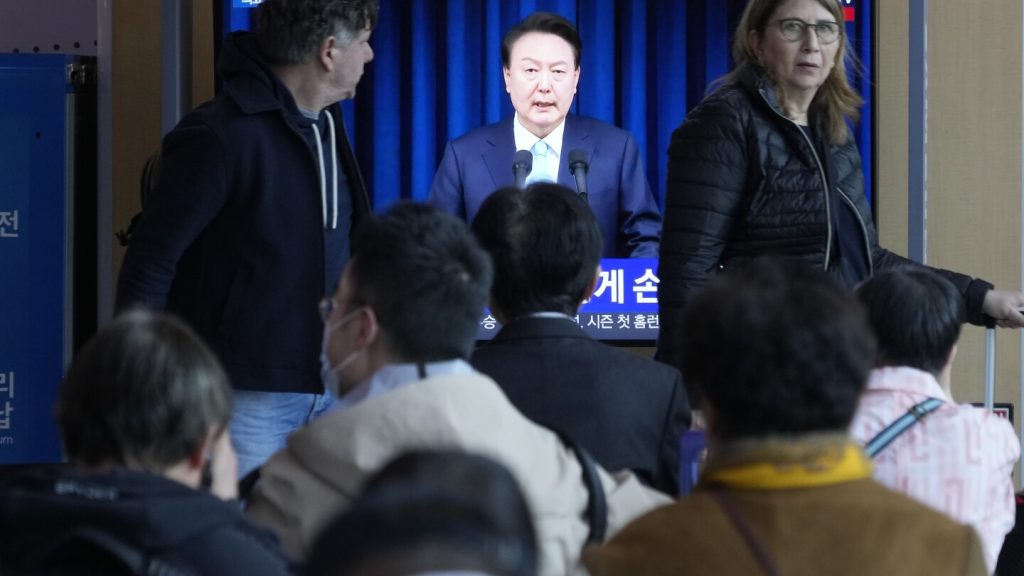South Korea’s President Yoon Suk Yeol is facing vehement protests from doctors over his plan to increase medical school admissions by 2,000 students. The doctors, including 12,000 medical interns and residents, have been on strike for six weeks, causing disruptions in hospitals. Officials argue that more doctors are needed to address the country’s aging population, but doctors believe the sudden increase in students would harm medical services. Critics suggest that doctors are primarily concerned about their future incomes, as South Korean doctors are among the highest-paid professionals in the country.
Despite the protests, a majority of South Koreans support the government’s efforts to increase the number of doctors. However, the ongoing confrontation between the government and doctors is causing frustration among the public and could impact governing party candidates in upcoming parliamentary elections. President Yoon defended the need for more doctors, citing shortages in rural areas, the military, and low-paying medical professions. He emphasized that South Korea’s doctor-to-patient ratio is lower than the developed world average and that increasing the number of doctors is a critical state project that cannot be delayed.
President Yoon urged the striking doctors to return to work, emphasizing their responsibility to protect lives in accordance with local medical laws. He expressed willingness to engage in dialogue if doctors can present a unified proposal explaining why the increase in medical school admissions is too steep. Yoon also reassured doctors that the recruitment plan would not lead to lower earnings, citing expected increases in national income and demand for medical services in an aging society. However, doctors remain adamant in their opposition to the enrollment plan, demanding its withdrawal before engaging in serious discussions with the government.
Despite the tensions, President Yoon ordered officials to pursue a flexible measure to resolve the dispute and seek constructive consultations with the doctors at the request of the ruling party leader. While the striking junior doctors represent a fraction of the total doctor population in South Korea, they play significant roles in major hospitals, assisting senior doctors during surgeries and treatments. Doctors argue that the government’s enrollment plan lacks solutions for increasing physicians in key but unpopular fields and may lead to unnecessary treatments due to heightened competition among doctors. The government is considering administrative steps to suspend the licenses of the striking doctors, but Yoon stated a willingness to soften punitive measures if they return to work promptly.
The confrontation between the South Korean government and doctors over the increase in medical school admissions continues to escalate, with President Yoon standing firm in his decision despite protests and strikes. The dispute highlights the challenges of balancing the need for more doctors with concerns about the quality of medical services and future incomes of healthcare professionals. As the situation unfolds, the impact of the ongoing confrontation on public health and the healthcare system in South Korea remains uncertain. President Yoon’s efforts to address the shortage of doctors and improve healthcare delivery in the country are facing significant resistance from the medical community, raising questions about the future of healthcare policy in South Korea.


